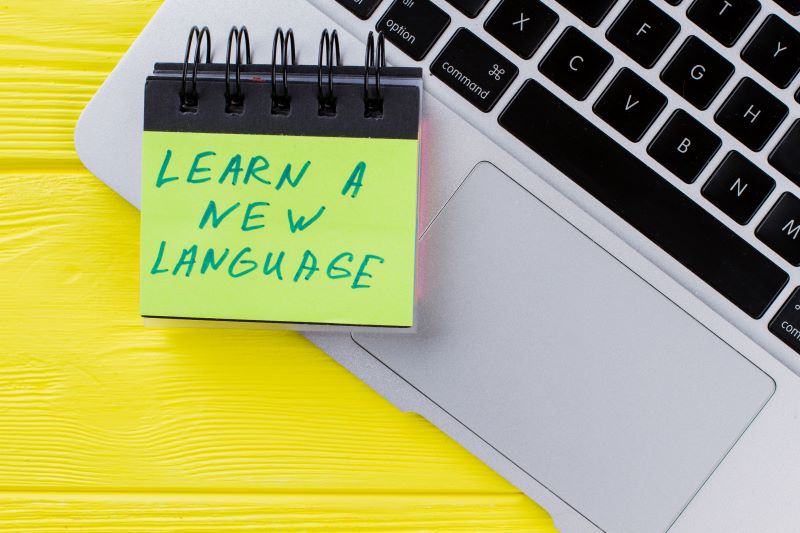Acadomia USA News, Learn a Language, Tutoring
When Is It Too Late to Learn a New Language?
It’s never too late to learn a new language. However, it can be difficult to learn a language later in life. Years of research show that learning a new language in adulthood can be very challenging. While there are different definitions of fluency, achieving it might not be possible when you’re older. Language is very complex and learning it is just as complicated. Humans naturally pick up language as children, but this plasticity is lost over time. But what age is too old to learn a new language?
The exact age that one stops being able to learn a new language is unknown. However, there is a great deal of evidence that children are able to learn another language up until the age of 18. Research also seems to indicate that learning any language is much easier for children under the age of 10. This isn’t very surprising considering what we know about children’s proclivity for language development.

Native Language
When babies are born, they act kind of like developmental sponges. They’re constantly absorbing information around them, including language. Babies naturally hear and process language from the adults around them. They pay attention to inflection, meaning, and grammar rules. As they get older, they try to apply these rules. Sometimes they do this incorrectly, like when they wrongly assume the past tense of a word. This is a common mistake that is often corrected by the adults around them. Children are told that they didn’t “eated”, they “ate”. They didn’t “runned”, they “ran”. Over the years, this has been interpreted as evidence that children are naturally adept at processing language. They can easily hear it, recognize a rule, and try to replicate it.
Young children even excel at producing language. Up until a certain age, children can produce many sounds that are found in different languages. As they get older, they lose this ability. This makes it difficult for adults to produce sounds that are exclusive to other languages. As children get older, they lose this flexibility that makes it easy to learn a language. For example, the Vietnamese last name “Nguyen” is difficult for many Americans. In English, some of the sounds required to pronounce “Nguyen” don’t usually exist in that order. Since native English speakers have never had to produce this sound before, they are unable to.

Age of Learning
Unfortunately, learning a language gets much more difficult as you age. When children are young, they are naturally more adept at processing language. Ideally, the best age to be exposed to a new language would be childbirth. Unless the child was born to bilingual parents, that isn’t an option for most people.
So what age is the best age to learn a new language? Research shows that it is best to introduce children to a new language before they turn 10. Kids under 10 have a much better time learning a new language, sometimes even being able to shed any signs of an accent. There are a few theories about why it’s easier for children to learn a new language. Some people believe that children’s brains are just better at learning new things. Others believe that as you get older, the rules of your native language make it difficult to learn new rules. It may also be possible that many adults just don’t have the time or resources to learn a new language. It gets easier to forget something the longer that you’re out of school.
Best Ways to Learn a New Language
No matter how old you are, it’s still not too late to learn a new language. While you may not be able to nail the accent, you can still reach a level that allows you to communicate effectively. Becoming fluent will always be easier for young children, but that shouldn’t stop adults from trying. Many people define fluency differently, which makes it difficult to say whether or not you can become fluent as an adult. Regardless of how you define fluency, learning a new language is definitely still a possibility, no matter how old you are.
There are many options when it comes to learning a new language. Instead of only relying on an app, seek out a tutor. Fluent tutors are great because they understand the best ways to teach a new language. It’s their job after all. Plus, when you use a tutor, they’re likely to catch any mistakes you make. They can answer questions and steer you on the path to success. Language learning apps support some memorization, but they can’t help you the way classes can.
When learning a new language, it’s important to practice your skills. One of the best ways to do this is by immersing yourself in the language. Unfortunately, not everyone can afford to fly to France when they want to learn French. But there are still some things you can do at home to help immerse yourself in the language. Start by watching television in the language you’re trying to learn. Obviously, this can’t replace an actual tutor, but it can help you practice hearing and understanding. It can also introduce you to new words you might not have heard otherwise.
Similarly, try finding other people to speak the language with you. Even though it might be intimidating, this can be a great way to learn a new language. You can practice listening, understanding, and responding all at the same time. You’re more likely to remember language when you actually use it. Language is meant to be spoken, so speak it! Don’t worry about sounding weird or saying something wrong. Practicing with another person is one of the best ways to supplement your learning outside of the classroom.

How to Learn a New Language
Even though learning a language is easier for children, don’t let that stop you from trying! No one is too old or too young to learn. Whether you want to learn a new language yourself or you want your child to learn, consider enrolling in classes. Classes taught by experts are the best way to learn a new language. Visit Acadomia to find classes for you or your child.
